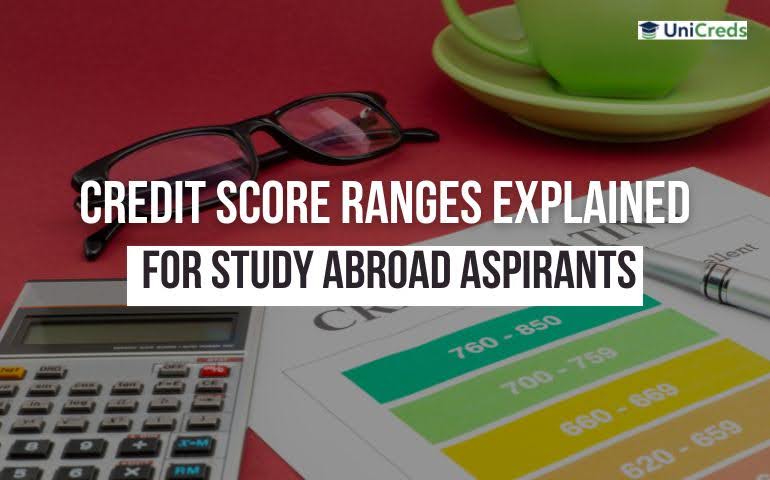Table of Contents
Student loans are funny. Most students use them but almost all of them don’t understand how they really work or how they impact their future. This article will teach you exactly this – how do student loans work? Student loans are more widely used than you’d think. It’s worth mentioning that, globally, there are more than $100 billion in new student loans made each year and more than $1 trillion in student loan debt outstanding. In order to make sure you don’t find yourself contributing to this vicious cycle, check out my top tips and tricks on how you can get yourself the best student loan possible. But first…
What Is A Student Loan?
A Student Loan or an Education loan is funds borrowed from a private lender or government in order to pay for further education. This student loan will have to be repaid over time, along with interest. You can use the funds from your student loan to pay for tuition, student accommodation, books, and other living expenses.
Submit the form on this page for 100% secure loans!
How Do Student Loans Work?
When you talk about student loans, it is important to understand that they are different from scholarships and grants. Student loans always have to be repaid unless you’re one of those lucky few who get part of your loan forgiven. Scholarships and loans, on the other hand, do not have to be repaid.
Now that we’ve established the difference between student loans and scholarships/grants, let’s find out how does an education loan work?
Your student loan comprises of “principal” and “interest”
In simple words, “principal” is the amount of money you receive from your student loan, and “interest” is what you pay back (along with the principal).
Student loan interest rates are one of the most important elements of your student loan. They directly affect your long-term cost. An interest rate is a cost of taking out your loan. It is calculated as a percentage of the amount you borrow and added to your loan. Interest rates come in two types –
Fixed interest rate – Remains constant throughout the tenure of your student loan.
Variable interest rate – Can change during the tenure of your student loan.
Interest rates charged on federal student loans (issued by the government), are generally set once a year and are fixed. Private student loans, however, tend to have variable interest rates that fluctuate higher or lower compared to federal student loans. This is why it is imperative to know the interest rate on your student loan, especially when taking it from private banks, credit unions, private lenders, or other types of financial institutions.
What Are The Current Student Loan Interest Rates?

Various banks and other financial institutions charge different rates of interest on student loans. As a student, it is important to check the student loan interest rates of every bank so that you can make an informed decision on which student loan to go ahead with. Here are some of the top banks in Indian that offer education loans –
Credila
- For all loan types and amounts – 11.85% onwards
State Bank of India
- Above Rs. 7.5 Lakhs – 10.50%
- Up to Rs. 7.5 Lakhs – 10.25%
HDFC Bank
- Maximum Annual Percentage Rate (APR) – 13.86%
- Average Annual Percentage Rate (APR) – 11.57%
- Minimum Annual Percentage Rate (APR) – 9.00%
Axis Bank
- Up to Rs. 4 Lakhs – 15.20%
- Loans greater than Rs. 4 Lakhs and up to Rs. 7.5 Lakhs – 14.70%
- Loans greater than Rs. 7.5 Lakhs – 13.70%
Bank of Baroda
- For all loan types and amounts – 8.50% onwards
Kotak Mahindra Bank
- For all loan types and amounts – 11.5% to 24%
Canara Bank
- Up to Rs. 4 Lakhs – 10.40%
- Rs. 4 Lakhs to Rs. 7.50 Lakhs – 10.40%
- Loans above Rs. 7.50 lakhs – 10.20%
- IBA´s Model Loan Scheme for Vocational Education & Training – 9.90%
- For Vidhya Turant Loan Scheme – 6.60%
Avanse
- For all loan types and amounts – 10% to 16.50%
How To Apply For A Student Loan?
First and foremost, you need to know if you are eligible to get student loans in India for studying abroad. You need to ensure that you meet all the requirements and criteria to get an education loan.
It is important to bear in mind that, more often than not, the whole education loan process, right from loan application to approval and disbursement, is a time-consuming task. This is why UniCreds advises you to apply for your student loan much in advance. This is the usual process on how to apply for a student loan –
- Check if the bank recognises the course in which you are going to study.
- Ascertain how much education loan you will require and how much money you will arrange on your own.
- Study the education loan properly. Make sure you’re aware of these key points –
- Loan Margin
- Moratorium period
- Exchange Rate fluctuations
- After you are satisfied with the terms and conditions of the education loan, make sure you fill out the application form and approach your bank.
- Once your education loan is approved, you will receive a loan document that includes various elements of the loan from your bank.
- When you sign the loan document, your bank will disburse the amount in installments or as asked by the university.
What Is The Best Place To Apply For A Student Loan?

You should channel all your energy into finding the best place to apply for a student loan since you’re aware of how do student loans work. Your best and safest bet would be applying to nationalised or private banks. Most of these banks have a dedicated department for student loans, so expect secure and reliable student loans. However, the only problem is that students cannot, or rather, do not want to visit multiple banks while applying for a student loan. While this activity may sound tedious and cumbersome, students often miss out on super low-interest rates because they simply don’t approach the bank.
This is why UniCreds is the best place to apply for a student loan. UniCreds is a student loan agent that has partnered with some of the biggest banks and NBFCs in the country. By applying for a student loan with UniCreds, students are essentially applying to all of the top banks that provide student loans.
Once you make an application through the UniCreds portal, the UniCreds’ banking partners will automatically receive the submission. Students then receive the best quotations from said banks, and have complete freedom in choosing whichever bank they seem fit, all the comfort of their own homes!
UniCreds’ seasoned education loan counsellors will also guide you through every stage of your student loan process.
Here is just a glimpse at what UniCreds has to offer –
- No hidden fees
- Up to 100% finance
- Affordable EMIs
- The lowest rate of interest
- Zero service charge from UniCreds
- Attractive tax benefits
- Flexible collateral requirements
- 24/7 service
I hope you now understand how do student loans work. Be wise with your decisions on how to use the funds from your education loan. Make sure they go straight into your education and not towards your spring break trip to Cancún!
FAQs
1. How does a student education loan work?
A student education loan is a type of loan that students can borrow to pay for their education. The loan is typically repaid over a period of time after the student graduates.
2. How long do you have to pay off student loans?
The length of time you have to pay off your student loans depends on the terms of your loan. Some loans have a repayment period of 10 years, while others have a repayment period of 20 years or more.
3. What are the interest rates associated with student loans?
The interest rates on student loans vary depending on the type of loan and the lender. However, interest rates on student loans are generally lower than interest rates on other types of loans, such as credit card loans and personal loans.
4. Are there any tax benefits associated with paying off student loans?
Yes, there are a number of tax benefits associated with paying off student loans. For example, students can deduct the interest they pay on their student loans from their taxable income. Students can also claim a tax credit for tuition and fees.
5. How does a student loan work in India?
Student loans in India are typically offered by banks and financial institutions. To qualify for a student loan, students must meet certain eligibility criteria, such as having a good academic record and a co-signer. The loan amount is typically disbursed directly to the educational institution. Students start repaying the loan after they complete their education.
Thank you for reading this blog on ‘How Can I Become A Permanent Resident In The US’? If you’d like to read more, here are some blogs that could be of interest to you –










0 Comments